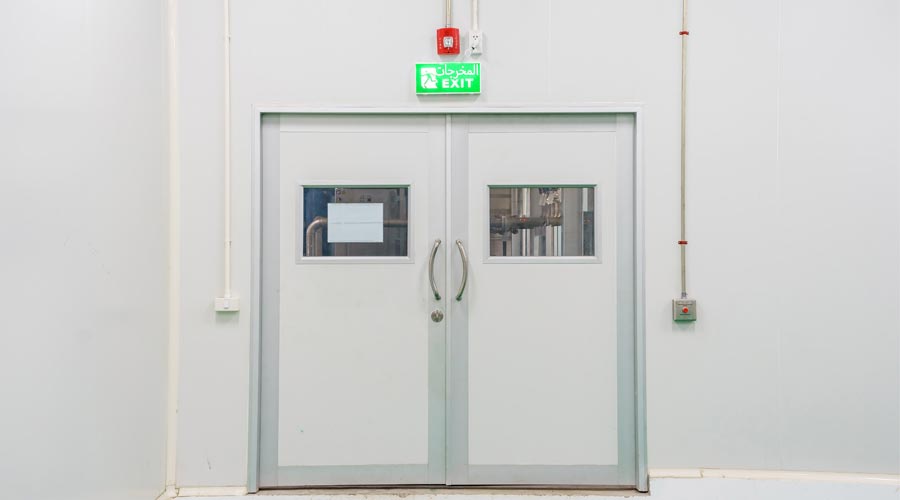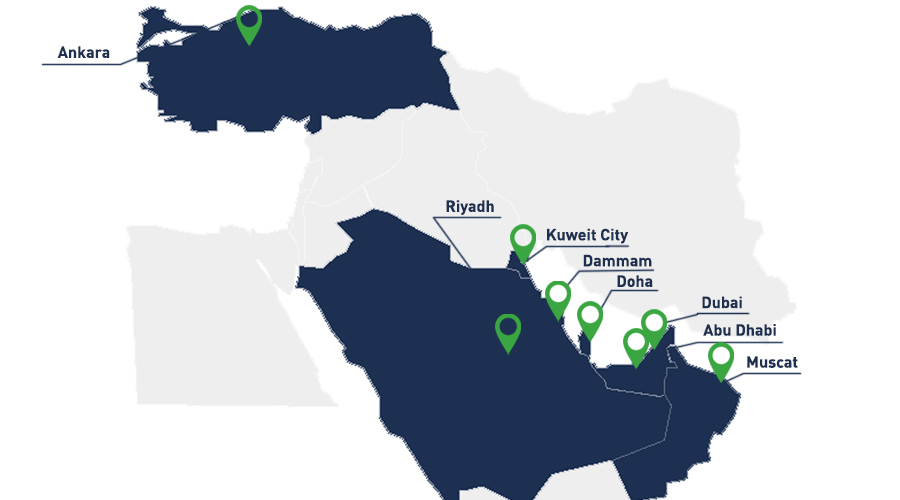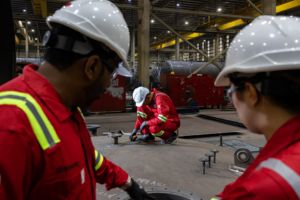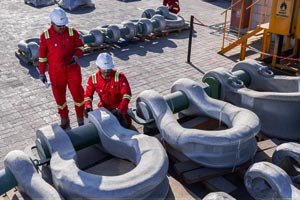Your fire prevention challenges
Whatever the type of building, its nature and its use, fire risk prevention is an essential part of guaranteeing the safety of its occupants and users. In addition to these key human issues, fire risk management also has material and financial implications, as well as regulatory imperatives that vary from country to country and from building to building.
To minimise the risk of fire starting throughout the building's lifecycle, it is essential to adopt fire prevention measures as early as possible in the design phase, to ensure that construction and operation comply with local fire standards.
Apave solutions
in the Middle East


Our Apave teams, based in several Middle Eastern countries, can help you control fire risks at every stage of your construction project, from design to delivery.
From the preliminary design phase onwards, our experts work alongside your client to ensure that the future building complies with fire safety standards and your own specifications. These experienced professionals, who know the local regulations inside out, rigorously check every aspect of the project: the plans, the materials chosen, the layout of the building, the installation of fire-fighting equipment (fire dampers, fire doors, etc.), the marking of evacuation and rescue routes, etc. They identify, with the utmost precision, all the upgrades and corrective actions needed to comply with legal requirements and limit the risk of fires starting in the future building.
We can intervene at any stage of the design and construction phase, on all types of structures (industrial, residential, commercial, public buildings, high-rise or very high-rise buildings, etc.), whatever the nature of the project (new build, refurbishment, change of use, renovation, etc.).
We also offer a wide range of additional services, tailored to your needs and the specific features of your project, including:
- Fire prevention checks (fire-fighting measures, evacuation procedures, etc.)
- Tests and inspections of fire-fighting installations (smoke extraction equipment, sprinklers, extinguishers, alarms, fire valves, etc.)
- Training in prevention, fire safety and evacuation
- Fire simulation exercises
- ...
Fast, reliable local support
in Middle East


Apave is an international group specializing in risk management, with over 150 years of experience.
Every day, Apave's 18,000 employees collaborate with customers to help them protect what they value most: their employees, customers, and assets. Apave offers services and expertise in five key areas: inspection, training, testing and measurements, certification and labeling, and consulting and technical support.
Our teams consist of highly qualified and experienced experts. Thanks to their advanced technical expertise and in-depth knowledge of local regulatory frameworks, they perform reliable and precise technical inspections, considering the specific requirements of the country, sector, and asset involved.
Whether it concerns personal safety, site safety and compliance, environmental safety, or digital security, Apave’s mission is always to be a trusted third party for its customers.
Your questions about
our fire prevention services
-
What causes fires in buildings?
Fires can start for a number of reasons, depending on the type of building and the nature of the activity. Among the causes of fire risks are thermal sources of ignition (for example, heating appliances or hot surfaces); electrical sources of ignition (such as overloading of electrical networks); natural sources of ignition (lightning, sun, forest fire, etc.) or causes related to human action (poorly extinguished cigarette butts, malicious acts, lack of vigilance, etc.). -
What fire prevention measures should I put in place in my building?
Numerous preventive measures can and should be deployed from the design phase and throughout the building's life cycle, to ensure that fire risks are controlled. These include:
- The installation of public evacuation systems (clearance, smoke extraction, signposting of emergency exits, lit access routes, escape routes, etc.)
- Drawing up a fire safety plan
- Eliminating sources of fire (combustible products, flammable materials, etc.)
- Setting up training and simulation exercises
- Installing and maintaining fire-fighting equipment (fire doors, sprinklers, fire extinguishers, smoke detectors, etc.)
-
What is your knowledge of local fire regulations?
Our teams have many years' experience working with major players in the Middle East region, and are fully familiar with the standards in force in the country where the work is to be carried out. They will be able to provide you with accurate information on compliance failures and guide you towards the appropriate fire risk prevention measures, in line with the local legal framework.
Our other services
Our strengths

OUR CUSTOMER RELATIONSHIP APPROACH

OUR EXPERTISE



